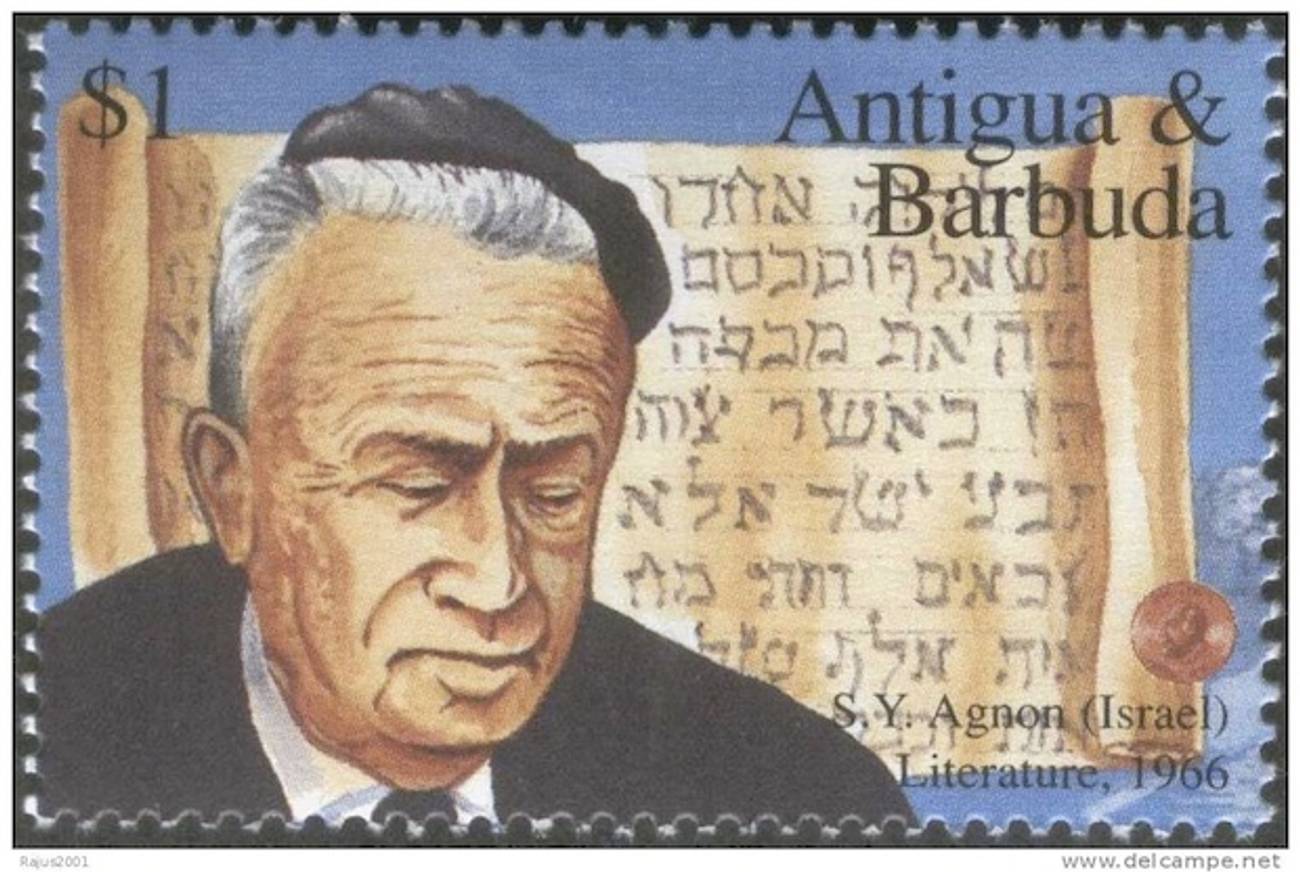S.Y. Agnon Turns 125
Celebrating Israel’s only Nobel literature laureate




Born two years after David Ben-Gurion, about whom you can read a fine book here by Shimon Peres, Israeli writer S.Y. Agnon would have been 125 years old today. (You may recognize him from the 50 shekel bill.) We marked the occasion last year by celebrating the 100th anniversary of his first novella And The Crooked Shall Be Made Straight, a book which won Agnon the Nobel Prize for Literature, making him the first and only of his countrymen to do so.
Beyond the international acclaim, on which we may collectively place too much emphasis anyway, it’s difficult to read an Israeli writer without detecting the influence of Agnon on his or her prose (whether you know it or not). In 2011, Adam Kirsch wrote for Tablet about Agnon’s novel Only Yesterday, which wasn’t translated from the Hebrew until 2000.
Holding it up side-by-side with Leon Uris’ Exodus, a book which Kirsch laments may have 1,000 readers for every one of Agnon’s Only Yesterday:
Yet looking at the two novels side by side reveals a certain kinship. Just look at the minor character of Gorishkin in Only Yesterday, a writer who, Agnon says, “has already left behind all his own thoughts and wants only to be the writer of the Land of Israel. A new life is taking shape in the Land and it needs its writer.” He sounds like a version of his creator: Agnon moved to Palestine in 1908, at the age of 21, and went on to become a modern Hebrew classic, and the only Israeli writer to win the Nobel Prize. But in his nationalistic fervor, Gorishkin also sounds a bit like Uris, who designed Exodus to be a Hollywood-scale myth of the “new life taking shape in the Land.”
When we encounter Gorishkin, however, he hasn’t yet figured out the right way to write the epic of Eretz Yisrael. As Agnon writes, “he hasn’t yet made up his mind whether to write things as they are, that is, to copy from reality, or to make his books novels. On the one hand, his heart inclines to things as they are, for there is no truth like the truth of actions, and on the other hand, novels are likely to appeal to the heart and lead to action.”
Where Uris sanctified a particular Jewish toughness, a quality we may admire less and less over time, Agnon (also with a particular toughness) deftly cast a light on Israeli uncertainty, which is part of what made him a giant and why he was so important in introducing Israel to the world in a way that Uris never could.
Adam Chandler was previously a staff writer at Tablet. His work has appeared in the New York Times, the Wall Street Journal, the Atlantic, Slate, Esquire, New York, and elsewhere. He tweets @allmychandler.